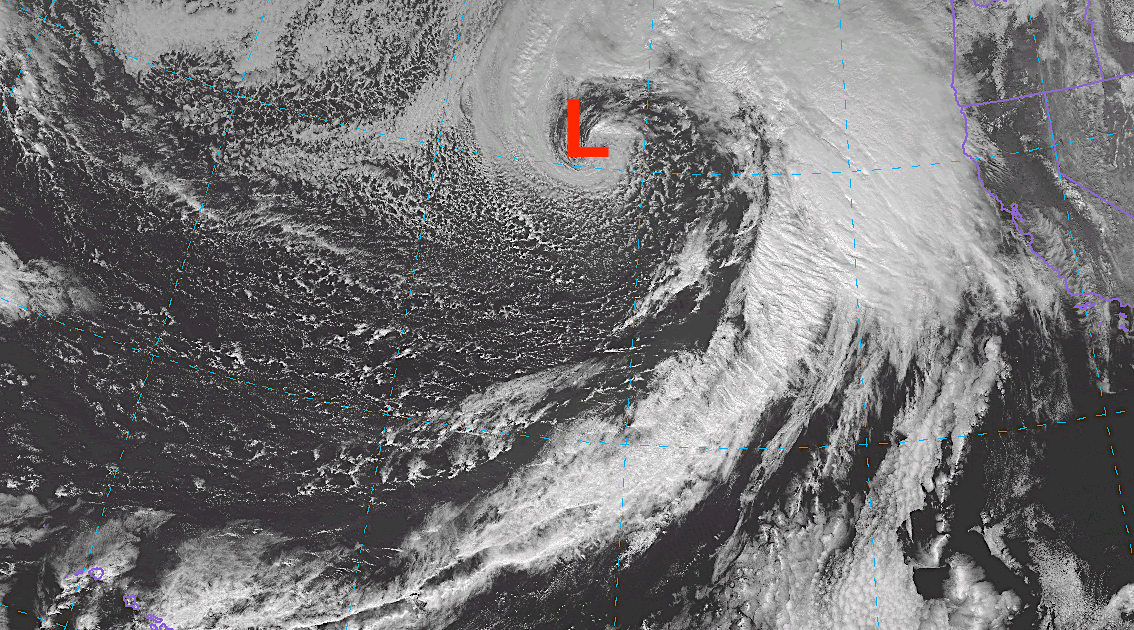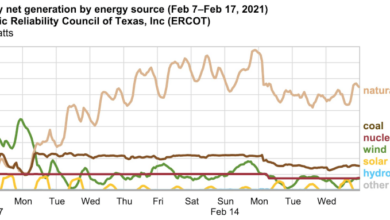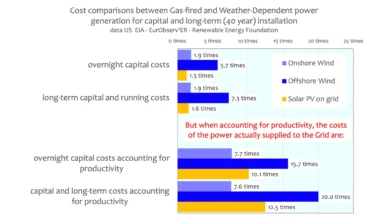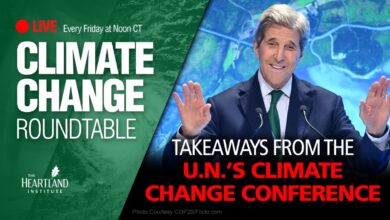“The First Amendment Does Not Apply to … Facebook and Twitter” – Watts Up With That?
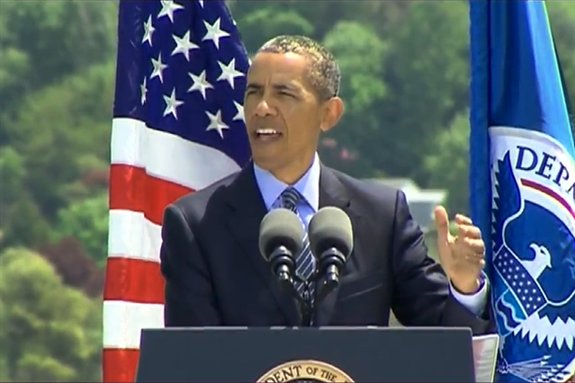
Guest essay by Eric Worrall
According to President Obama, there should be more government censorship of social media and internet search, to prevent the spread of “toxic information”, like climate skeptics and the opinions of people who don’t trust Dr. Fauci. But expressing the opinion that Russia rigged the 2016 election is completely fine.
APRIL 21, 2022
‘Regulation has to be part of the answer’ to combating online disinformation, Barack Obama said at Stanford event
Former U.S. President Barack Obama delivered a keynote address about how information is created and consumed, and the threat that disinformation poses to democracy.
BY MELISSA DE WITTE, TAYLOR KUBOTA, AND KER THAN
This story was updated on Thursday, April 21, at 6:51 p.m. PT
During a speech at Stanford University on Thursday, former U.S. President Barack Obama presented his audience with a stark choice: “Do we allow our democracy to wither, or do we make it better?”
Former U.S. President Barack Obama delivered a keynote address about how information is created and consumed, and the threat that disinformation poses to democracy.
Over the course of an hour-long address, Obama outlined the threats that disinformation online, including deepfake technology powered by AI, poses to democracy as well as ways he thought the problems might be addressed in the United States and abroad.
“This is an opportunity, it’s a chance that we should welcome for governments to take on a big important problem and prove that democracy and innovation can coexist,” Obama said.
…
Read more: https://news.stanford.edu/2022/04/21/disinformation-weakening-democracy-barack-obama-said/
The full video – Obama’s speech starts at around 9:13.
From the video;
“One of the biggest reasons for democracies weakening, is the profound change in how we communicate”
…
“20 years ago, the pillars of web search were comprehensiveness, relevance, speed. But with the rise of social media, and the need to better understand people’s online behaviour, in order to sell more advertising, companies wanted to collect more data, more companies optimised for personalisation, engagement and speed. And unfortunately it turns out that inflammatory polarising content attracts and engages. Other features of these platforms have compounded the problem, for example the way content looks on your phone, as well as the veil of anonymity that platforms provide their users, a lot of times can make it impossible to tell the difference between say a peer reviewed article by Dr. Anthony Fauci, and a miracle cure being pitched by a huckster. And meanwhile sophisticated actors, from political consultants to commercial interests to intelligence arms of foreign powers, can game platform algorithms, or artificially boost the reach of deception, or harmful messages.
…
Now, its true, tech companies and social media platforms are not the only distributors of toxic information, promise me, ah I promise, I’ve spent a lot of time in Washington, right? In fact, some of the most outrageous content on the web, originates from traditional media.
…
Take Covid. The fact that scientists developed safe, effective vaccines in record time is an unbelievable achievement. And yet, despite the fact we’ve now essentially clinically tested the vaccine on billions of people worldwide, around one in five Americans is still willing to put themselves at risk, and put their families at risk, rather than get vaccinated. People are dying, because of misinformation.
I already mentioned the 2020 Presidential Election. President Trump’s own attorney general has said the justice department uncovered no evidence of widespread evidence. A review of the ballots in Arizona’s largest county, the results of which were endorsed by some pretty courageous Republicans, because many of them harassed, and received death threats, actually found more votes for President Biden and fewer votes for President Trump. And yet, today, as we speak, a majority of Republicans still insist that President Biden’s victory was not legitimate. That’s a lot of people.
…
People like Putin, and Steve Bannon for that matter, understand its not necessary for people to believe disinformation in order to weaken democratic institutions. You just have to flood a country’s public square with enough raw sewage, you just have to raise enough questions, spread enough dirt, plant enough conspiracy theorising, that citizens no longer know what to believe.
Once they lose trust in their leaders, in mainstream media, in political institutions, in each other, in the possibility of truth, the game’s won. And as Putin discovered leading up to the 2016 election, our own social media platforms are well designed to support such a mission, such a project.”
— lots of nonsense about Russia meddling in the 2016 election —
No-one in my administration was surprised that Russia was attempting to meddle in our election, they’ve been doing that for years, or that it was using social media in their efforts. Before the election I directed to intelligence officials to expose those efforts to the press and to the public. What does still nag at me though, was my failure to fully appreciate at the time, just how susceptible we had become, to lies and conspiracy theories. Despite having spent years being a target of disinformation myself.
Putin didn’t do that. He didn’t have to. We did it to ourselves.
So where do we go from here? If we do nothing, I’m convinced the trends we’ve that we’re seeing will get worse. New technology is already challenging how we regulate the currency, how we keep consumers safe from fraud, and with the emergence of AI, disinformation will grow more sophisticated. I’ve already seen demonstrations of deep fake technology, which shows what looks like me, on a screen, saying stuff I didn’t say.
Fortunately I am convinced it is possible to preserve the transformative power and promise of the open internet, while at least mitigating the worst of its harms. And I believe those of you in the tech community, soon to be in the tech community, not just its corporate leaders, but employees at every level, have to be part of the solution.
…
The essence of this place, what put Silicon Valley on the map, is a spirit of innovation. Its what led to the globally integrated internet, all its remarkable applications. What we’ve now learned is, the product has some design flaws. There are some bugs in the software.
We don’t have to just leave it like that. Through the same spirit of innovation, we can make it better.
So I want to make some general suggestions, for what that work might look like.
…
We aren’t going to get rid of all offensive or inflammatory content on the web. We’d be wrong to try. Freedom of speech is at the heart of every Democratic society. In America those protections are enshrined in the first amendment in our constitution. There’s a reason it came first. I’m pretty close to a first amendment absolutist. I’m pretty sure that in most instances, the answer to bad speech is good speech. I believe that the free, robust, sometimes antagonistic exchange of ideas produces better outcomes and a healthier society. No democratic government can or should do what China for example is doing, simply telling people what they can or cannot say or publish, while trying to control what others say about their country abroad. And I don’t have a lot of confidence that any single individual or organisation, private or public, should be charged or do a good job determining who gets to hear what.
That said, the first amendment is a check on the power of the state. It doesn’t apply to private companies, like Facebook or Twitter, any more than it applies to editorial decisions made by the New York Times or Fox News. Never has. Social media companies already make choices about what is or is not allowed on their platforms, and how that content appears, both explicitly through content moderations, or implicitly through algorithms.
…
When I’m going to evaluate any proposal touching on social media and the internet, is whether it strengthens or weakens the prospects for a healthy inclusive democracy. Whether it encourages robust debate, and respect for our differences. Whether it reinforces rule of law, and self governance. Whether it helps us make collective decisions based on the best available information. And whether it recognises the rights, the freedoms and dignity of all of our citizens. Whatever changes contribute to that vision, I’m for. Whatever erodes that vision, I’m against.
Just so you know.
Alright, with that as my starting point I believe we have to address, not just the supply of toxic information, but also the demand for it. On the supply side, tech platforms need to accept that they play a unique role in how we as a people and people around the world are consuming information, and that their decisions have an impact on every aspect of society.
With that power comes accountability. And in democracies like ours at least, the need for some democratic oversight.
For years social media companies have resisted that kind of accountability. They’re not unique in that regard, every private corporation wants to do anything it wants. So the social media platforms call themselves neutral platforms, with no editorial role in what their users saw. They insisted that the content people see on social media has no impact on their beliefs or behaviour, even though their business models and their profits are based on telling advertisers the exact opposite.
…
An interesting study came out recently, and this is just one study, so take it with a grain of salt, but the researchers paid a large group of regular Fox News watchers to watch CNN for a month. And these were not swing voters, these were hard core hand on knee Carlson fans, right there. And the researchers found, that at the end of the month, peoples views on certain issues, like whether voting by mail should be allowed, or whether electing Joe Biden would lead to more violence against police, on some of these issues, their views had changed by 5, 8, 10 points. These people didn’t suddenly turn into liberals. I’m sure they still don’t like me. But at the margins, they had reshaped their perspectives in meaningful ways. Studies like this show our opinions aren’t fixed, and that means our divisions aren’t fixed either, if we can agree on some common baseline of facts, and can agree on some common baseline of how we sort out our disagreements.
The divisions which exist in this country aren’t going away anytime soon, but the information we get, the stories we tell ourselves, as Lincoln said, can encourage the better angels of our nature. They can also encourage the worst. And a healthy democracy depends on our better angels being encouraged.
So, as citizens, we have to take it upon ourselves, to become better consumers of news, looking at sources, thinking before we share, and teaching our kids to become critical thinkers who know how to evaluate sources, and separate opinion from fact. In fact a number of school districts are working to train kids in this kind of online media literacy, not around any particular idealogical perspective, but just, how to check a source. Does this person who is typing in his mother’s basement in his underwear, seem a credible authority on climate change? That is something we should all want to support. Part of this project is also going to include finding creative ways to reinvigorate quality journalism, including local journalism.
…
Source: The Youtube Video Above
Obama spent the first part of his speech lamenting the old days, when everyone got their “facts” from the same small set of networks.
The most fascinating part of Obama’s speech for me, is how he seems to believe people should blindly defer to authority. Trust Fauci’s words because he is an authority, not because his words make sense. Don’t listen to the guy in his mother’s basement in his underwear, because he’s not someone like Fauci. Give your faith to President Biden, because he is the President.
In fact the entire speech in my opinion was a lament about how the hold of old authorities has been weakened, and how new authorities must be established – like his plan for ensuring school kids are trained in rigidly conformist methods of news evaluation, which would likely lead to them all reaching very similar conclusions.
I never blindly accept the words of someone just because I think they are an authority. I expect their words to make sense. My trust in their words has to be earned, and once that trust is broken, good luck getting it back.
As the Royal Society used to believe, nullius in verba. Take nobody’s word for it. In God we Trust, everyone else has to provide evidence.
The society Obama describes would still pay lip service to freedom of speech – all those opinions would still be out there somewhere. But the goal appears to be to rigidly exclude and isolate people with non mainstream views, to prevent them from linking with others who think like them, to hide them away, by actively censoring non mainstream views from the town square of social media and internet search. Climate skeptics would be free to write their opinions on web pages – but nobody would ever find their website through a web search, and people who tried to share climate skeptic articles would be censored by social media.
We have already had a taste of this kind of anti-freedom censorship – Facebook’s backflip on whether it would allow Covid lab leak theories to be discussed by users. One minute the theory was banned from the social media town square, the next minute Fauci softened his viewpoint, and Facebook took this as a cue to allow users to discuss the lab leak theory.
Imagine Facebook’s Covid lab leak censorship absurdity extended to every facet of your online life, and you get an idea of how horrible Obama’s locked down information society would be.
I don’t know if Covid leaked from a lab, maybe we will never know – but it is outrageous that people were restricted from discussing such an obvious possibility, until Fauci signalled discussion of the lab leak theory was now acceptable.
Science, more than any other field, would be damaged by such censorship. Science experiences its most rapid advances when an upstart challenges and overturns the beliefs of the many – when a newcomer proves someone like Fauci is wrong. But that upstart has to be heard, before they can challenge the beliefs of the powerful.
I’m not suggesting every upstart or challenge to established scientific theory should succeed. There are many more ways to be wrong than right, most crackpots are just crackpots.
But my heart goes out to people like Barry Marshall, the hero doctor who overturned an entire field of medicine, by putting his own life at risk to prove they were wrong. Barry endured years of exclusion and dismissal from medical authorities and his peers, until his desperate act finally drew attention, and overcame the medical community’s reluctance to review his evidence based challenge to their beliefs.
Medical authorities thought Barry Marshall was a crackpot, until he up and won a Nobel Prize for his groundbreaking work. A policy which excludes crackpots on the word of establishment leaders would also exclude people like Barry Marshall. To exclude such people from the town square because their opinion contradicts establishment viewpoints would be to exclude the possibility of a better tomorrow.
